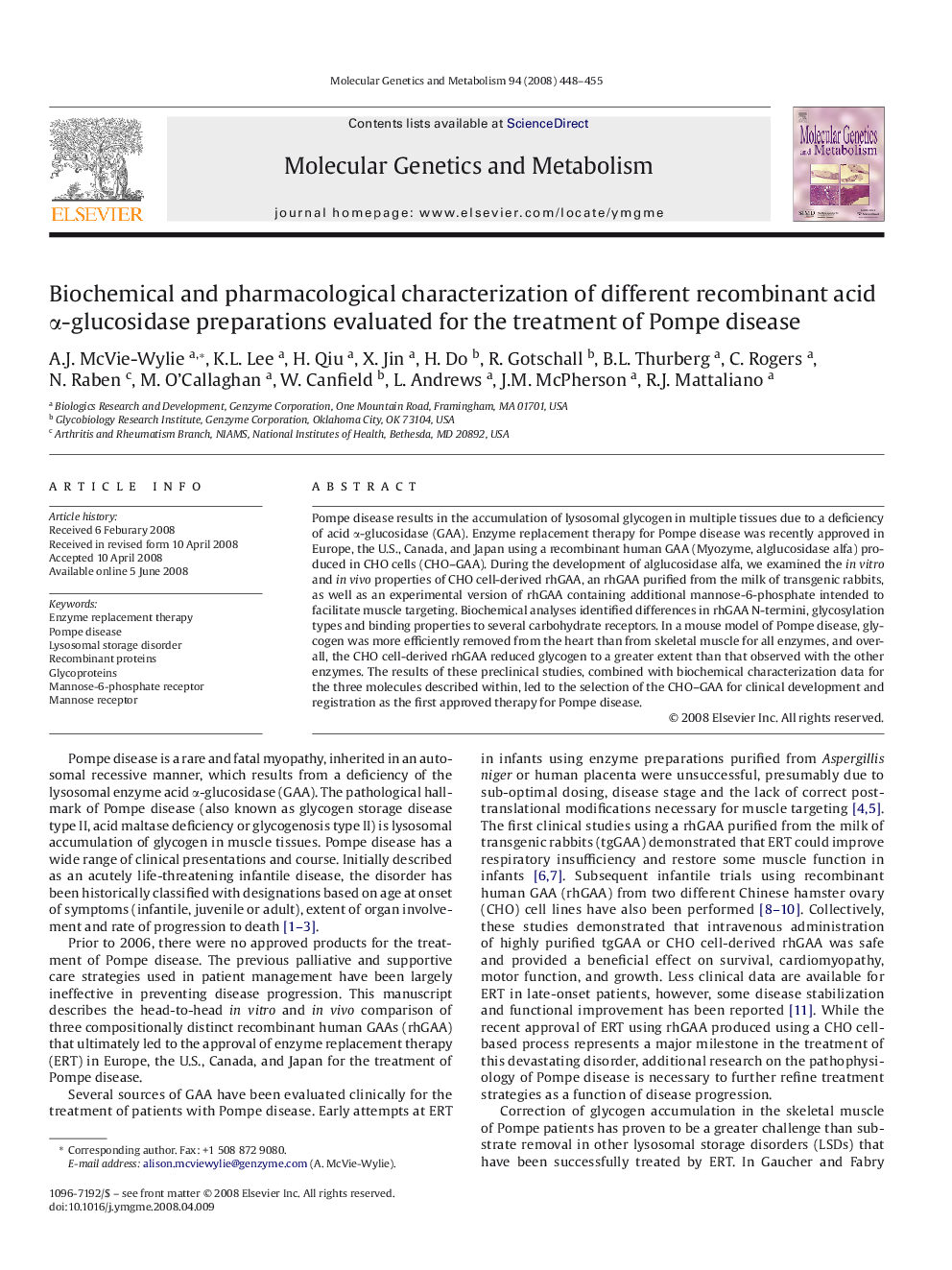| Article ID | Journal | Published Year | Pages | File Type |
|---|---|---|---|---|
| 1999200 | Molecular Genetics and Metabolism | 2008 | 8 Pages |
Pompe disease results in the accumulation of lysosomal glycogen in multiple tissues due to a deficiency of acid α-glucosidase (GAA). Enzyme replacement therapy for Pompe disease was recently approved in Europe, the U.S., Canada, and Japan using a recombinant human GAA (Myozyme, alglucosidase alfa) produced in CHO cells (CHO–GAA). During the development of alglucosidase alfa, we examined the in vitro and in vivo properties of CHO cell-derived rhGAA, an rhGAA purified from the milk of transgenic rabbits, as well as an experimental version of rhGAA containing additional mannose-6-phosphate intended to facilitate muscle targeting. Biochemical analyses identified differences in rhGAA N-termini, glycosylation types and binding properties to several carbohydrate receptors. In a mouse model of Pompe disease, glycogen was more efficiently removed from the heart than from skeletal muscle for all enzymes, and overall, the CHO cell-derived rhGAA reduced glycogen to a greater extent than that observed with the other enzymes. The results of these preclinical studies, combined with biochemical characterization data for the three molecules described within, led to the selection of the CHO–GAA for clinical development and registration as the first approved therapy for Pompe disease.
